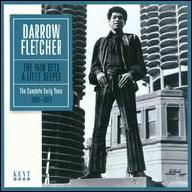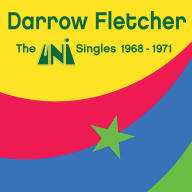At least three more singles on Groovy Records didn't come close to equaling the minimal success of his debut; he switched labels again and again, but sales never amounted to much. He recorded some singles, though; Sitting There That Night was a monster in Chicago, but never got much further than the city limits, due to Jacklyn Records' small budget. He cut What Good Am I Without You (1968) for the same label with the same results. Chicago's big city lifestyle, combined with his local success, got him flossy gigs at the Regal Theater with stars such as Stevie Wonder, Jimmy Ruffin, B.B. King, the Radiants, and others. His The Way of a Man made CKLW's (Detroit/Windsor) heavy rotation, notching well into the station's Top 20 survey. Pushed and managed by his father, Fletcher tried but never signed to a label with deep pockets. He had two releases on Revue Records that went totally unnoticed everywhere but at the Fletcher abode. In 1970, Dolly Baby b/w What Is This dropped on Uni Records, but made no noise. Now Is the Time for Love came out on Genna Records, another midget.
After a while, Fletcher gave up the dream. A Darrow Fletcher compilation isn't on the market, and despite all his recordings, he never made an album. Some of his songs can be found from time to time on Northern soul websites playable via Real Audio. Some select cuts are on various Northern soul compilations, mostly imports, which can be hard to come by in the States. Other notable recordings include What Have I Got, I've Gotta Know Why, My Judgement Day, Gotta Draw the Line, and My Young Misery, the follow-up to The Pain Gets a Little Deeper. ~ Andrew Hamilton, Rovi















